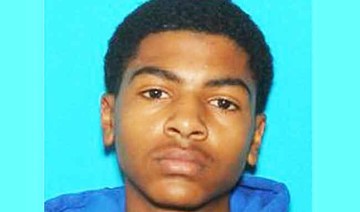MUNICH, Germany: European leaders on Saturday scrambled to force their way to the table for any talks on the Ukraine war, as Washington announced a team of senior US officials was planning to meet in Saudi Arabia with counterparts from Moscow and Kyiv.
US President Donald Trump upended the status quo this week when he announced he was likely to soon meet Russian leader Vladimir Putin to start talks to end the conflict, leaving US allies in Europe concerned their interests would be sidelined.
US Secretary of State Marco Rubio, National Security Adviser Mike Waltz and Middle East envoy Steve Witkoff will head to Saudi Arabia for ceasefire talks with Russian and Ukrainian negotiators, US officials said Saturday, without giving details on when the meeting would happen.
Rubio had already began his Mideast tour on Saturday, arriving first in Israel.
The top US diplomat also had a call Saturday with his Russian counterpart Sergei Lavrov, in which he “reaffirmed President Trump’s commitment to finding an end to the conflict in Ukraine,” spokeswoman Tammy Bruce said in a statement.
In Munich, NATO chief Mark Rutte said Europe had to come up with “good proposals” for securing peace in Ukraine if it wanted to be involved in US-led talks.
“If Europeans want to have a say, make yourself relevant,” Rutte told journalists at a gathering of top policymakers.
Rutte also said he would head to Paris on Monday to take part in an expected meeting of European leaders convened by French President Emmanuel Macron.
A spokesman for Macron’s office told AFP “discussions” were ongoing over a “possible informal meeting.”
UK Prime Minister Keir Starmer said Saturday that Europe “must take on a greater role in NATO” and work with the United States to “secure Ukraine’s future.”
As part of any eventual “security guarantees” for Ukraine, talks have begun in Europe over a potential deployment of peacekeepers.
But those discussions are at an embryonic stage — and others argue the focus needs to be on building up Ukraine’s own forces.
European army
Speaking at the Munich Security Conference, Ukrainian President Volodymyr Zelensky called for the creation of a European army, arguing the continent could no longer count on Washington.
“We can’t rule out the possibility that America might say no to Europe on issues that threaten it,” Zelensky said.
“I really believe that time has come. The Armed Forces of Europe must be created.”
The push for a joint continental force has been mooted for years without gaining traction and Zelensky’s intervention seems unlikely to shift the balance.
Zelensky’s rallying cry came a day after he met US Vice President JD Vance and as Kyiv tries to ensure it is not sidelined by Trump’s engagement with Putin.
“Ukraine will never accept deals made behind our backs without our involvement,” Zelensky said in a speech.
“No decisions about Ukraine without Ukraine. No decisions about Europe without Europe.”
But Trump’s special envoy to Ukraine, Keith Kellogg, gave Europeans reasons to doubt they would be heard.
Europe would not be directly involved in talks but would still have an “input,” Kellogg said in Munich.
Vance's assurance
US officials have sought to assure Ukraine that it will not be left in the cold after three years of battling Russia’s invasion.
Vance said after his sit-down with Zelensky that the United States was looking for a “durable, lasting peace” that would not lead to further bloodshed in coming years.
But Washington has sent mixed messages to Kyiv, with Pentagon chief Pete Hegseth appearing to rule out Ukraine joining NATO or retaking all of its territory.
Trump has also pushed for access to Ukraine’s stocks of rare earth minerals as compensation for the military aid provided by the United States.
Zelensky said Saturday he blocked a deal that would have given the US access to vast amounts of Ukrainian natural resources as it lacked “security guarantees” for Kyiv.
“In my opinion, it does not protect us... our interests,” Zelensky told journalists.
The situation for his forces on the ground has continued to deteriorate.
Despite suffering heavy battlefield losses, the Russian army has been creeping forward in eastern Ukraine for more than a year.
Outside the Munich conference, several hundred pro-Ukrainian demonstrators voiced fears about what may come from talks.
“It’s terrifying,” said Ukraine-born protester Nataliya Galushka, 40, who left the country when she was a child.
“The fact that (Trump is) talking to Putin, a criminal, what kind of world is this?“





























